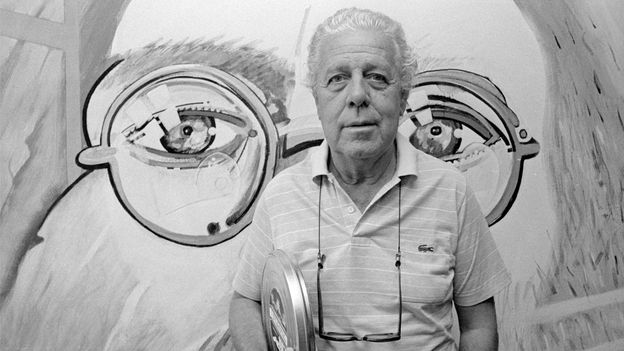Is this Spain’s greatest film director?


All of these particularly Spanish elements of Berlanga’s work go some way to explaining why he never quite found an international audience. But he didn’t consistently find a Spanish audience, either. Many of his best films were made during the dictatorship but struggled to be screened widely in the country. In part, this was likely the work of the authorities. But his films could also be uncomfortable to watch. At the time, Spaniards were watching simpler kinds of comedy – ones that “didn’t critique, didn’t have an ironic and grotesque aspect,” says Siles Ojeda.
Berlanga’s domestic box-office hits came after the end of the dictatorship in 1975. The black-and-white of his earlier films gave way to colour; his humour, unchained from censorship, became exaggerated. Berlanga had always had a private obsession with erotica, and now it began to edge into his films in the form of, for example, the doddering Marquis Leguineche with his collection of body hairs in The National Shotgun. Not everyone enjoyed the shift. “Before, the humour was more roguish, elegant,” Siles Ojeda says. “But when Spain started to live with a certain freedom, it became ever more vulgar.”
That change was just one of the ways Berlanga reflected the shifts in Spain that he lived through. Taken together, his 17 films over the second half of the 20th Century portray a country through a transformative period of its history. That’s why he’s often seen as the great chronicler of Spanish society. And he is – but it’s Spain as filtered through Berlanga, a history told through caricatures. “A caricature is an exaggerated portrait, but in the end it is still a portrait,” says Villena. “If I was a history teacher in a school, I would show my pupils a few Berlanga films to teach them about the Spain of the 20th Century. Without a doubt.”
Love film and TV? Join BBC Culture Film and TV Club on Facebook, a community for cinephiles all over the world.
If you would like to comment on this story or anything else you have seen on BBC Culture, head over to our Facebook page or message us on Twitter.
And if you liked this story, sign up for the weekly bbc.com features newsletter, called The Essential List. A handpicked selection of stories from BBC Future, Culture, Worklife and Travel, delivered to your inbox every Friday.








